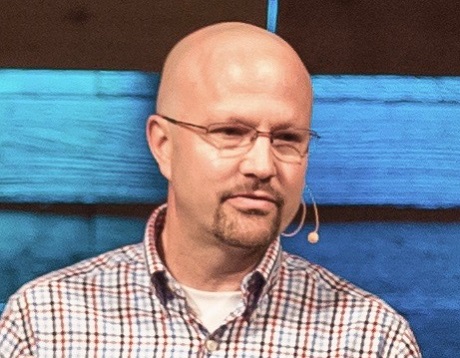- Calls to this hotline are currently being directed to Within Health, Fay or Eating Disorder Solutions
- Representatives are standing by 24/7 to help answer your questions
- All calls are confidential and HIPAA compliant
- There is no obligation or cost to call
- Eating Disorder Hope does not receive any commissions or fees dependent upon which provider you select
- Additional treatment providers are located on our directory or samhsa.gov
Follow Up Care after Intensive Outpatient Treatment

Thirteen years ago, I had the privilege of working with a teen girl receiving treatment for anorexia. Last month, we met again and strolled through a park with her 6-month-old baby in tow.
Now a therapist herself, she counsels clients with eating disorders. I cannot express how delightful it was to spend time with her and hold her infant daughter. It brought a lot of joy to my heart!
The journey to recovery was not an easy one for my former client. Immediately upon her return home from treatment, she relapsed and was admitted to the hospital, despite having eating disorder follow up care, a supportive family, and an outpatient team.
Relapse among those with eating disorders is high, even among those who fully participate in treatment. [1, 2] What can treatment centers do? What resources are available?
Every treatment center that I know of helps clients identify and schedule appointments with an outpatient team before discharge. Having a team consisting of a therapist, registered dietitian, psychiatrist, and medical provider is the ideal situation, but it is not possible for everyone.
Many patients come from smaller towns that have few or no local professionals trained to treat eating disorders.
Eating Disorder Follow Up Care
 To fill this gap, I began offering online recovery coaching to clients in 2011.
To fill this gap, I began offering online recovery coaching to clients in 2011.
Many organizations have started doing the same since then, and today there are more ways to boost your follow up care after leaving treatment:
Local or Online Support Groups
The local option will always be best, but if you can’t find a group in your area, there are many online groups available to provide support.
Online Counseling
If you can’t find a local therapist who specializes in eating disorders, consider an online counselor. Several organizations, such as Eating Disorder Hope, the National Eating Disorders Association and the Academy of Eating Disorders can connect you with a counselor who will work with you virtually.
If they have experience working with eating disorders, they will likely recommend you also work with a doctor or dietitian who can see you in person.
Recovery Coaches
Both virtual and in-person coaching is a growing service. In some cases, you might have both a therapist and a coach to support you in your eating disorder follow up care.
Be aware; anyone can call themselves a recovery coach. Look for someone who has professional experience as a licensed therapist, registered dietitian, or someone who has completed a coaching certification course.
Books and Podcasts
Reading eating disorder recovery books or listening to recovery-oriented podcasts are two additional ways you can keep yourself grounded and motivated for recovery.
Could there be more?
 For many years, I’ve held the opinion that an online recovery program, like the MORE program offered by the Hazelden Betty Ford Foundation for those with addictions, would be a tremendous resource for eating disorder clients after leaving treatment.
For many years, I’ve held the opinion that an online recovery program, like the MORE program offered by the Hazelden Betty Ford Foundation for those with addictions, would be a tremendous resource for eating disorder clients after leaving treatment.
Centers will follow up with clients to see how they are doing and gather information about their progress, but none that I know of offer the robust support of the MORE program.
Creating a program like this would provide an incredible service for those with eating disorders. It would also take focused efforts and committed financial resources. I would love to see a treatment center or organization step up to the plate and create a program like this.
RESOURCES:
[1] Khalsa1, S. S., Portnoff3, L. C., & Feusner5, J. D. (2017, June 14). What happens after treatment? A systematic review of relapse, remission, and recovery in anorexia nervosa. Retrieved October 15, 2019, from https://jeatdisord.biomedcentral.com/articles/10.1186/s40337-017-0145-3. [2] Berends, T., van Meijel, B., Nugteren, W., Deen, M., Danner, U. N., Hoek, H. W., & van Elburg, A. A. (2016, September 8). Rate, timing and predictors of relapse in patients with anorexia nervosa following a relapse prevention program: a cohort study. Retrieved October 15, 2019, from https://www.ncbi.nlm.nih.gov/pmc/articles/PMC5017136/. [3] My Ongoing Recovery Experience. (n.d.). Retrieved October 15, 2019, from https://www.hazeldenbettyford.org/recovery/preventing-relapse/my-ongoing-recovery-experience.About the Author:
 Travis Stewart, LPC has been mentoring others since 1992 and became a Licensed Professional Counselor in 2005. His counseling approach is relational and creative, helping people understand their story while also building hope for the future. Travis has experience with a wide variety of issues which might lead people to seek out professional counseling help.
Travis Stewart, LPC has been mentoring others since 1992 and became a Licensed Professional Counselor in 2005. His counseling approach is relational and creative, helping people understand their story while also building hope for the future. Travis has experience with a wide variety of issues which might lead people to seek out professional counseling help.
This includes special interest in helping those with compulsive and addictive behaviors such as internet and screen addiction, eating disorders, anxiety, and perfectionism. Specifically, he has worked with eating disorders since 2003 and has learned from many of the field’s leading experts. He has worked with hundreds of individuals facing life-threatening eating disorders in all levels of treatment. His website is wtravisstewart.com
The opinions and views of our guest contributors are shared to provide a broad perspective on eating disorders. These are not necessarily the views of Eating Disorder Hope, but an effort to offer a discussion of various issues by different concerned individuals.
We at Eating Disorder Hope understand that eating disorders result from a combination of environmental and genetic factors. If you or a loved one are suffering from an eating disorder, please know that there is hope for you, and seek immediate professional help.
Published October 18, 2019, on EatingDisorderHope.com
Reviewed & Approved on October 18, 2019, by Jacquelyn Ekern MS, LPC

The EatingDisorderHope.com editorial team comprises experienced writers, editors, and medical reviewers specializing in eating disorders, treatment, and mental and behavioral health.

